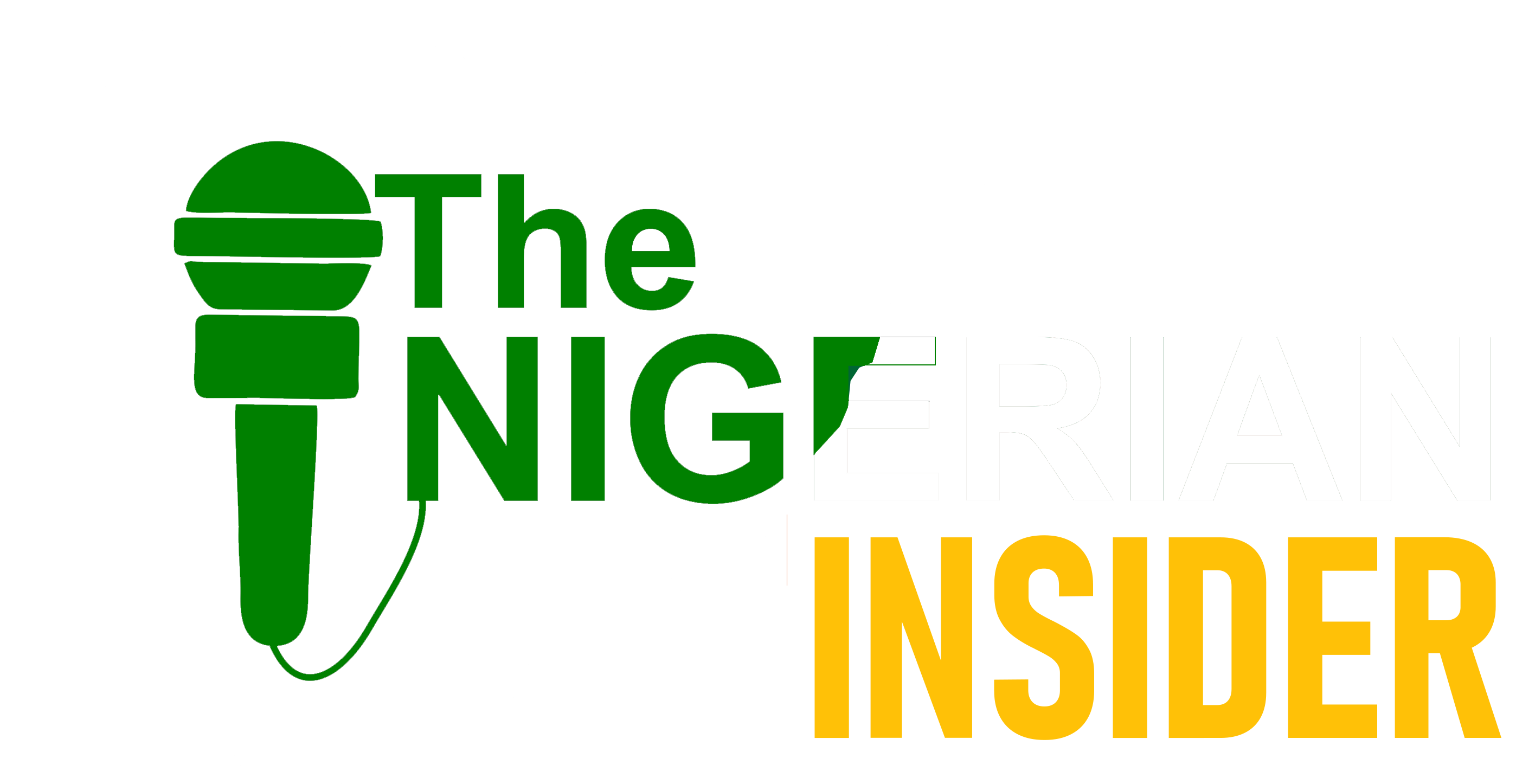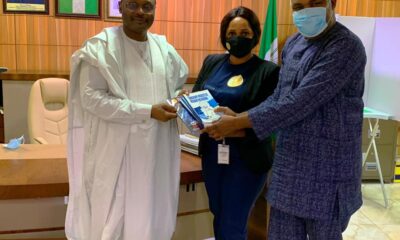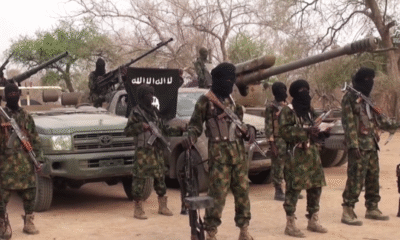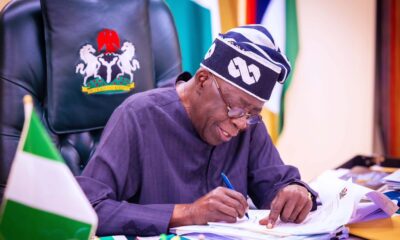News
How has Ned Nwoko served Nigeria’s constitutional democracy – By Emmanuel Onwubiko
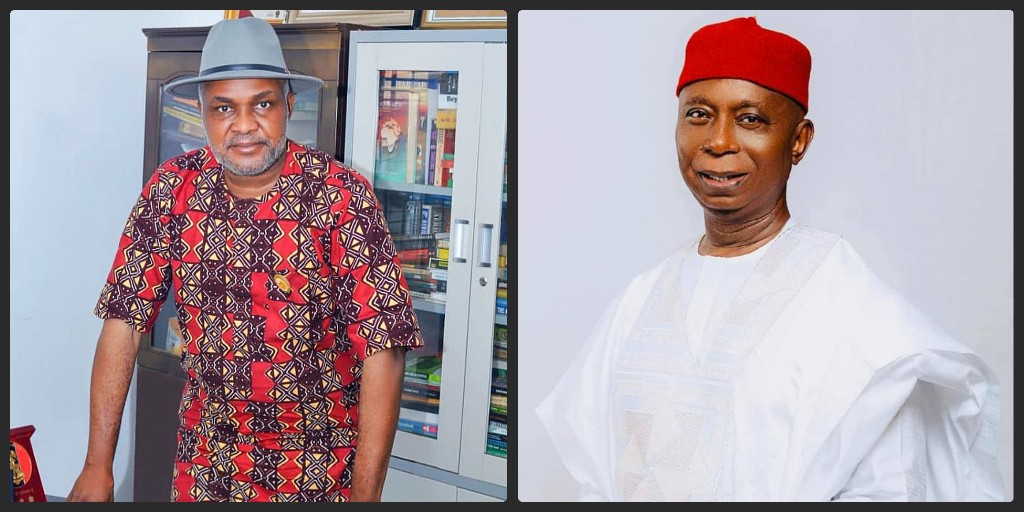
Prince Ned Munir Nwoko is not your typical politician who runs his mouth around idealistic and unreachable targets.
From my existential or put it rightly evidential knowledge of Prince Nwoko since the last 20 years, I can report from the beginning that he is more of a realist who puts his mouth where his money and capabilities are. If you like, you can ascribe the Igbo philosophy of EKWUEME as his modus vivendi and modus Operandi given that he is very strategic in his thinking and what he articulates as programmes that are beneficial to his people in the Delta North Senatorial District.
He, Ned Munir Nwoko, pursues the implementation of these initiatives with candour and commitment. Often, I look at those lofty projects at the foundational stage and I do express pleasant shock to note that these programmes and initiatives, such as the establishment of the first ever Nigeria’s SPORTS AND SCIENCE UNIVERSITY, are carried out seamlessly and timeously. So as we have marked the year 2025 Democracy Day, we will attempt to contextualise and analyse some implemented blueprints by Ned Nwoko towards advancing the constitutional democracy in Nigeria.
When Senator Prince Ned Munir Nwoko entered the Nigerian Senate in June 2023, he came bearing more than a constituency mandate—he brought a vision. In less than two years, he has submitted over 30 bills, moved upwards of 20 motions, and delivered more than 50 community-based projects in Delta North alone. It’s a pace few Nigerian legislators manage even over multiple terms. What distinguishes Senator Nwoko is the coherence of his agenda: each bill, motion, and solar-powered streetlight contributes to a broader vision of a Nigeria rooted in unity, dignity, economic sovereignty, and justice.
In a chamber where speeches often outweigh substance, Nwoko stands out. He has proposed 31 bills—ranging from constitutional amendments to sectoral reforms—with remarkable depth. His advocacy for the creation of Anioma State aims to rebalance federal representation and foster development in the Southeast. His push for diaspora voting seeks to enfranchise millions abroad, while a Central Bank amendment mandates local currency payments, reinforcing monetary sovereignty. He has also introduced bills for a Social Security Agency to alleviate poverty and a Waste & Malaria Eradication Agency to tackle health and environmental crises from the ground up.
His legislative vision is forward-looking. A proposed amendment to Nigeria’s Data Protection Act would require foreign social media platforms to establish local offices and servers—asserting digital sovereignty. A controversial firearms regulation bill demonstrates his willingness to engage creatively with Nigeria’s insecurity challenges.
On the Senate floor, Nwoko’s motions reflect similar depth. He has demanded reparations for victims of the 1967 Asaba Massacre, advocated for an end to oil theft and gas flaring in the Niger Delta, and called for Africa to be granted a UN veto power—anchoring historical justice and geostrategic equity at the center of national discourse. He has also raised concerns about foreign-currency payments to state workers and the need to improve access to local healthcare and education.
What transforms his legislative proposals into tangible change are his deliverables in Delta North. More than 50 completed constituency projects span infrastructure, healthcare, education, security, and agriculture. Solar streetlights now illuminate once-dark rural roads. Communities previously abandoned now have solar-powered boreholes. Clinics, schools, and police stations have been upgraded. Farmers have received seeds and fertilizer, youths have undergone vocational training, and women have been empowered through targeted initiatives. These projects represent governance by results, not rhetoric.
Senator Nwoko also chairs two critical Senate committees—on crude oil theft and on reparations and repatriations. These are not routine assignments; they involve high-stakes issues that touch Nigeria’s economic lifelines and moral conscience. His leadership of both panels signals the trust of his peers and his commitment to accountability and institutional reform.
His advocacy extends beyond the chamber. He has toured major oil installations in Delta North, pressing for transparency and equity in revenue sharing. On social media, he has been vocal about data privacy and platform accountability. His promotion of irrigated farming and food self-sufficiency confronts Nigeria’s paradox of importing crops it could grow. His speeches consistently bridge national ideals with practical policy steps.
What’s striking is the alignment between his rhetoric and results. Diaspora voting? Bill submitted. Economic sovereignty? Central Bank amendment filed. Social safety nets? Social Security Agency bill introduced. Community empowerment? Over 50 projects completed. Historical justice? Motions filed, committees led. Digital sovereignty? Data protection amendment proposed. Local security? Firearms and defence education bills in motion.
This consistency stems from deliberate planning, political will, and a clear institutional strategy. It also requires discipline—juggling legislative duties, oversight responsibilities, constituency engagement, and public advocacy simultaneously. In a system where many struggle with even one of these, doing all four effectively is uncommon.
Nigeria stands at a crossroads. Insecurity is rampant, the economy unstable, and youth unemployment threatens the nation’s future. Amid this turbulence, Nwoko’s blend of legislative ambition and tangible constituency projects presents a model worth studying. The diaspora voting bill could reconnect the nation with its global human capital. The Anioma State proposal addresses marginalization. The Central Bank bill reasserts financial control. The waste-and-malaria initiative and rural infrastructure signal bottom-up health reform. The social security plan tackles entrenched poverty. The data regulation bill envisions ethical digital governance.
Naturally, his agenda faces headwinds. Constitutional amendments require supermajority support. Funding must match intent. The naira-only rule may spark state resistance. The Anioma State proposal could trigger ethno-regional opposition. Social media companies may resist data localization mandates. These challenges will test both the feasibility and durability of his vision.
But this is where Nigerian governance often falters—bridging the gap between bill and budget, motion and implementation. That’s why Nwoko’s community projects matter. The boreholes, solar lights, and clinics are more than infrastructure—they’re symbols of what functional governance can look like. They show that state action can still kindle hope.
While critics may dismiss the Senate as a talk shop, few legislators have matched words with this level of execution across multiple sectors. In a body steeped in transactional politics, Nwoko is pushing for coherent, integrated policymaking. He is making the case that democracy works best when legislation, oversight, and grassroots development move in tandem.
This matters in a time of deep institutional distrust. Public confidence in governance is at a low ebb, with many viewing the legislature as inefficient and corrupt. Nwoko’s approach—connecting laws to local impact—seeks to rebuild that trust. By delivering both bills and boreholes, committees and clinics, motions and empowerment programs, he is constructing bridges between citizens and the state.
Still, the larger battles lie ahead. Will the Anioma State bill clear committee stages? Will diaspora voting survive constitutional review? Can Central Bank reforms withstand elite pressure? Will the malaria agency secure funding? Can digital sovereignty survive pushback from global tech interests? These are the proving grounds for his legislative legacy.
Early indicators suggest he’s in this for the long haul. His legislative focus touches Nigeria’s core fault lines: monetary policy, regional equity, diaspora engagement, digital infrastructure, justice, agriculture, and security. This is no accident—it signals strategic positioning and long-term commitment.
In under two years, Senator Nwoko has demonstrated that Nigerian politics can operate with urgency and focus when vision is matched by action. He has shown that legislation need not be symbolic; it can be catalytic. As he once put it, “a country of seven hundred different projects and seven hundred different stories doesn’t equal progress.” Real progress, he argues, requires unified frameworks—agricultural policy tied to food sovereignty, data laws tied to accountability, diaspora voting tied to national integration.
No, he is not offering utopia. But he is testing the possibility of practical governance—one that drafts laws and delivers light. He is probing whether a coherent, people-centered Senate agenda can make a real difference. He is showing that vision, supported by implementation, can transcend the theatre of politics.
There is a vacuum in Nigerian leadership today. The naira continues to decline. Kidnappings worsen. Public services falter. Politicians seem detached from the people’s lived reality. Into this vacuum, Nwoko offers something rare: a narrative grounded in evidence. A story told not only in Senate bills, but in the lit streets of Delta North.
He is not above critique—no public servant should be. Power corridors are treacherous; idealism is often tested by entrenched resistance. But if Senator Nwoko stays the course—passing landmark bills, securing funding, scaling projects—he might just prove a fundamental truth: that coherent, citizen-centered governance is possible in Nigeria.
We are watching. Nigeria should watch too. And perhaps, learn.
COMRADE EMMANUEL ONWUBIKO WAS A NATIONAL COMMISSIONER OF THE NATIONAL HUMAN RIGHTS COMMISSION OF NIGERIA AND IS THE FOUNDER OF HUMAN RIGHTS WRITERS ASSOCIATION OF NIGERIA (HURIWA).
News
ARISE News Anchor Somtochukwu Maduagwu Found Dead Following Abuja Robbery, Reports FCTA

The Federal Capital Territory Administration (FCTA) has confirmed that Somtochukwu Maduagwu was brought to Maitama Hospital without vital signs after a robbery incident at her home in Abuja.
Dr. Dolapo Fasawe, the Mandate Secretary on Health for the FCTA, stated that ARISE News anchor Somtochukwu Maduagwu was pronounced dead upon arrival at Maitama General Hospital at approximately 4:30 am on Monday. This clarification was issued via a statement from the FCTA, aimed at addressing earlier claims that medical negligence contributed to her demise following the robbery.
Somtochukwu Christelle Maduagwu, affectionately known as Sommie, was a 29-year-old journalist tragically killed during an armed robbery at her Katampe residence in Abuja in the early hours of Monday, September 29, 2025.
Residents of the apartment complex reported that the attack transpired around 3 a.m. when over 15 armed robbers invaded the 16-apartment building. Witnesses indicated that security personnel sounded the alarm and tried to reach the police, but there was no immediate response. Sommie and a security guard, who also sustained injuries during the incident, were promptly taken to Maitama District Hospital. However, family members claimed they were denied urgent treatment due to not having identification documents readily available. Both victims later succumbed to their injuries.
In the meantime, FCT Minister Nyesom Wike expressed his condolences to the management and staff of ARISE News Channel regarding the unfortunate demise of Somtochukwu Maduagwu. He described her death as both tragic and painful, and he prayed for God’s continued support for the staff of ARISE News, particularly for the Chairman, Prince Nduka Obaigbena, and for the family and friends of the late journalist. The minister noted that a preliminary medical report would be provided to the police to assist in their investigation, emphasizing that all necessary steps would be taken to uncover the details surrounding her death. He reassured the family, friends, and colleagues of Somtochukwu Maduagwu that the police are committed to discovering the circumstances of her passing and ensuring that those responsible face justice.
Source: ARISE TV
News
Negotiations With Terrorists Undermine Elements Of Nigeria’s Statehood: HURIWA says

Pro-democracy and civil rights advocacy group HUMAN RIGHTS WRITERS ASSOCIATION OF NIGERIA (HURIWA) has condemned the Federal government for permitting some states in the North-west to negotiate the so-called peace agreement with terrorists, criminal gangs and armed kidnappers, just as the Rights group said the negotiations have undermined and eroded the key elements of Nigeria’s statehood.
HURIWA blames the ambiguities of the Federal government on how to deal decisively with armed brutes killing thousands of Nigerians for the expanding frontiers of terrorist attacks and the unprecedented insecurity in many parts of Nigeria. “Since the Federal Government is creating the impression that it is open to dialogue with terrorists, then more and more desperate criminals would escalate their criminal activities, hoping that they too would merit an invitation for dialogue by the current administration that is already discussing with terrorists in the North West for the so-called peace.
Criminal gang members who are watching the dialogue sessions with terrorists in the North West will automatically become daring and bloody so as to gain attention of the government that is too weak to militarily defeat terrorists and very willing to enter into negotiations for the so-called truce.”
HURIWA which expressed the position that any public office holder or private individual who negotiates with terrorists is also a terrorist, has therefore called on President Bola Ahmed Tinubu to stop the disgraceful surrendering of the Nigerian state to the whims and caprices of a motley crowd of armed bandits, bloodstained terrorists, armed kidnappers and criminal gangs in Katsina and some other states in the Northern States of Nigeria.
HURIWA said there is no doubt that what have played out in the last couple of weeks in Katsina, Zamfara and other places in the North West of Nigeria in the guise of local and state governments negotiating with terrorists for the so-called truce, amounted to the demolition of the four fundamental elements that qualifies Nigeria as a Sovereignty even as HURIWA postulated that the state as a person of international law should possess the following qualifications: (a) a permanent population (people); (b) a defined territory; (c) government (political authority); and (d) capacity to enter into relations with the other states (diplomat recognition or sovereignty).
HURIWA which condemned the negotiations with terrorists, said the impression being created globally with these charades going on in Katsina by way of negotiations for peace with terrorists responsible for killings of dozens of citizens is that Nigeria has gradually lost those key elements of statehood. HURIWA also stated that the negotiations have completely rubbished the determination of the families of victims of terrorism from achieving any sort of closure and justice for the terminations of the lives of their loved ones and the losses of livelihoods they suffered as a result of terrorist attacks.
HURIWA asked rhetorically thus: “Is it not preposterous that whilst the president Tinubu’s government has sanctioned negotiations with terrorists that are wanted by advanced and sophisticated nations such as the United States, the same administration sent out the Vice President Kashim Shettima to the United Nations General Assembly in New York to canvass that Nigeria be made a permanent member of the security council of the United Nations?
“Is this not a pathetic irony to openly demonstrate to the World that Nigeria’s statehood is eroding fast, as demonstrated by the show of shame called peaceful negotiations with terrorists who attended the so-called truce meetings in Katsina state, wielding some of the most sophisticated weapons of mass destruction and other combat weapons of military grades?
Has this government in Nigeria no shame and has the government no respect for the constitution of the Federal Republic of Nigeria? We insist that terrorists must be made to face the full wrath of justice, just as we believe that government is obliged to take justice to terrorists or bring terrorists to justice for their crimes of bloodshed and destruction of livelihoods of Nigerians.
HURIWA recalled that authorities in Nigeria’s northwestern Katsina state reportedly struck a so-called peace deal with criminal gangs in what it says is an effort to end years of violence, a government official confirmed to the media.
HURIWA recalled that Katsina is one of several states in northwestern and central Nigeria terrorized by criminal gangs that the locals refer to as bandits. The federal government, through the Defence Headquarters, had previously declared the leaders of the terrorists groups now negotiating with government as terrorists, even as huge amounts of money was promised as rewards for information leading to their arrests.
HURIWA wondered the logic in negotiating with criminal gangs that continuously raid villages, rape girls and children, kill and abduct residents, as well as torch homes after looting them.
HURIWA recalled that the terrorists and criminal gangs maintain camps in a huge forest straddling Zamfara, Katsina, Kaduna states in the northwest region and Niger state in the country’s central zone and have carried out mass kidnappings of students from schools in recent years.
HURIWA recalled that the Katsina State Government confirmed that a dozen bandit kingpins met with local officials and community leaders in the town of Danmusa, where they renounced violence and pledged to turn a new leaf, Nasiru Mu’azu, Katsina state internal commissioner said.
“There was a peace meeting between 12 bandit leaders and the local community leaders in Danmusa, where the bandits renounced their criminal activities and committed to peace,” Mu’azu said.
The bandits initiated the meeting, he said. “The community welcomed the overtures and agreed to a peace deal as long as the bandits are genuinely interested in peace,” he said.
Katsina state government stated that as a mark of goodwill, the bandits surrendered weapons and released 17 hostages, with the promise to free more people they were holding.
HURIWA said security experts have cautioned against any sort of appeasement of terrorists because, as criminals with zero ideological leaning, the bandits are motivated by financial gains, but their increasing business and operational alliance with jihadists from the northeast has been raising concern among government officials, which is the reason for the illegal negotiations with terrorists.
HURIWA pointed out that in 2023, Katsina state governor Dikko Umar Radda established Katsina Community Watch Corps, comprising around 2,000 vigilantes to assist the military and police in fighting the bandits.
“We have been fighting the bandits for the past two years, and the state governor has reiterated he will not negotiate from a position of weakness,” Mu’azu, the Katsina state official said.
In the media statement by the National Coordinator, Comrade Emmanuel Nnadozie Onwubiko, HURIWA reiterated its position of zero tolerance for any sort of negotiations with terrorists because that would amount to state surrender.
“We are asking President Tinubu to stop these acts of treason in the name of negotiations with terrorists. We believe that no matter the quantum of cash paid out to these terrorists now dialoguing with Katsina and other Northern governments, the moment the blood money finishes, these terrorists who are already used to making hundreds of millions of blood money will simply return to their familiar terrains of terrorism and when they do return, they would be even more vicious than they are now.”
COMRADE EMMANUEL NNADOZIE ONWUBIKO,
NATIONAL COORDINATOR,
HUMAN RIGHTS WRITERS ASSOCIATION OF NIGERIA (HURIWA).
MONDAY SEPTEMBER 29TH 2025.
News
Corruption Becoming Endemic Now: HURIWA Says
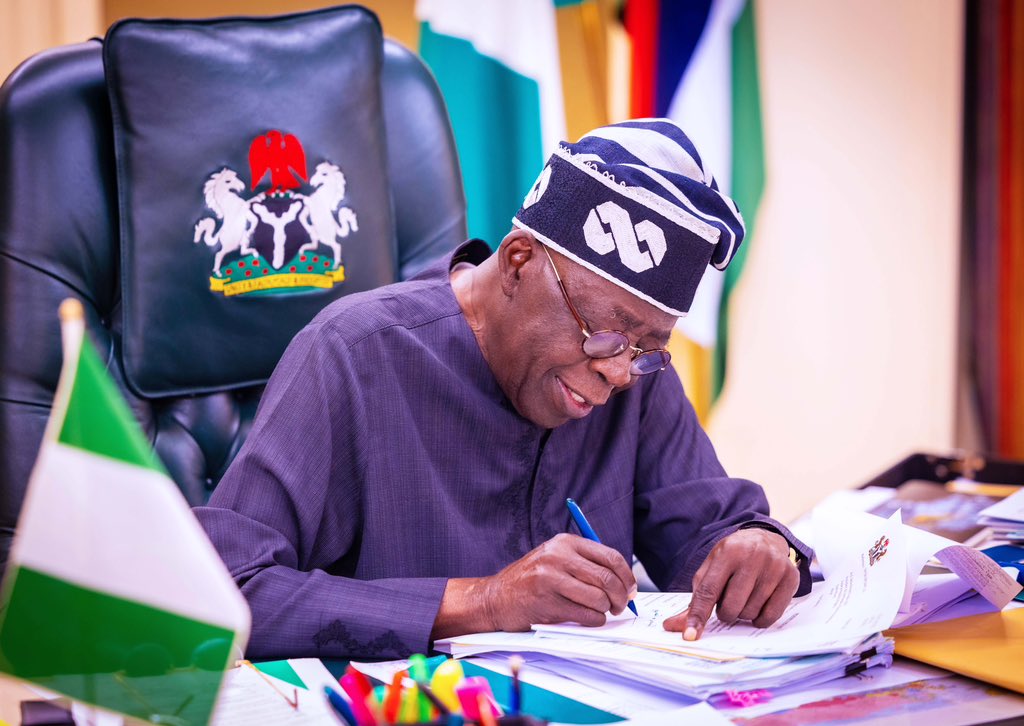
TASKS government on transparency in conditional cash transfer
Civil Rights advocacy Group HUMAN RIGHTS WRITERS ASSOCIATION OF NIGERIA (HURIWA) has expressed worry about the apparent inability of the Federal government to come clean on how N330 billion was disbursed to 8.1 million households without any compliance with the principles of transparency and accountability. “Most Nigerians are wondering whether this huge sum of public funds were shared to ghosts or to real citizens since these households are not known by millions of Nigerians.”
Besides, HURIWA has raised alarm that corruption is perceived to be so high within the government circles even as the Rights group said it was wrong for President Tinubu to keep silent in the face of mounting accusations of corruption affecting some of his appointees including the allegations of acquisitions of exotic housing assets by the Minister of the Federal capital territory Mr. Nyesom Wike with allegedly looted public funds.
HURIWA recalled that the federal Government had few days ago, announced that it has disbursed a total of N330bn to 8.1 million households across the country under the National Social Safety Net Programme, aimed at cushioning the harsh effects of economic reforms on Nigeria’s poorest and most vulnerable citizens.
The disclosure was made in Abuja by the Minister of Finance and Coordinating Minister of the Economy, Wale Edun, after a review meeting of the Special Presidential Panel on Social Investment, inaugurated by President Bola Tinubu in February.
Edun explained that the programme, which experienced delays earlier in the year, was now firmly back on track following the successful integration of biometric data through the National Identification Number. This integration, he said, was crucial to ensuring transparency, curbing leakages, and eliminating political interference.
According to the minister, out of the 19.7 million households captured in the National Social Register—representing about 70 million Nigerians—8.1 million households have already received at least one tranche of the N25,000 stipend. Some beneficiaries have received two or three payments depending on verification outcomes.
Reacting to the widespread failure of the Federal Government to evidently show believable proof of how this humongous cash were disbursed and to clearly publicise the identities of these beneficiaries, HURIWA said it is shocking that a democratically elected government put in place by the people, could come up with such seemingly phantom claim to have distributed financial lifelines to some impoverished citizens without any concrete evidence.
In a media statement by the National Coordinator Comrade Emmanuel Onwubiko, HURIWA criticised the federal ministry of Finance and the Coordinating ministry for the Nigerian economy for issuing out the press statement making the claim that can’t be empirically verified just as the Rights group said over ten thousand members of the organisation spread across the Country has not reported knowing or hearing about any Nigerian poor citizens/households who benefitted from the cash redistribution by the federal government.
“We are challenging the Federal Ministry of Finance and the Coordinating Minister of the Economy to prove to Nigerians that his ministry paid out the sum of N330 bn to 8.1 million households by publishing on the website of the ministry and newspapers the identities of the beneficiaries, their locations and the number in each of the benefiting states or local government areas. This demand is made in good faith because we have been unable to see or know anyone out of this 8.1 million households that got the N25,000. As citizens of Nigeria, we are entitled to be adequately informed because the methodology said to have been adopted by the government in redistribution of this taxpayers’ money is opaque and lacks ingredients of transparency and accountability.”
HURIWA is also urging President Bola Ahmed Tinubu to speak up about the growing accusations of corruption against some of his cabinet-level appointees one of which is the minister of the FCT.
HURIWA recalled that former presidential candidate of the African Action Congress (AAC) in the 2023 election, Omoyele Sowore, had petitioned the Attorney-General of Florida, James Uthmeier, demanding the forfeiture and prosecution of alleged multi-million-dollar properties secretly acquired in the United States by the Minister of the Federal Capital Territory, Ezenwo Nyesom Wike.
In a petition signed by his counsel, Deji Adeyanju, dated September 22, Sowore alleged that Wike, alongside his wife, Justice Eberechi Suzzette Nyesom-Wike of the Nigerian Court of Appeal, unlawfully purchased three lakeside properties in Winter Springs, Florida, worth over $6m.
The petition claimed the acquisitions were “conducted entirely in cash, thereby circumventing banking oversight and raising significant money laundering concerns.”
According to the documents, the properties include 113 Springcreek Lane, purchased for $535,000 and transferred to Jordan Wike; 209 Hertherwood Court, purchased for $459,157 and transferred to Joaquin Wike; and 208 Hertherwood Court, purchased for $465,000 and transferred to Jazmyne Wike.
The petition stressed that Wike, “a career politician with no record of legitimate private enterprise,” could not have earned the income to fund such acquisitions, adding that the assets were not declared to Nigeria’s Code of Conduct Bureau in violation of constitutional obligations.
Sowore, in his petition, stated that, “The evident pattern in this case involves large cash acquisitions by a long-serving public officer with no legitimate private earnings, the immediate transfer of title to his children, and the concealment of true beneficial ownership.
HURIWA said: “Whilst we await the decision of the foreign entity regarding the petition said to have been sent to them, accusing the minister of FCT of illegally buying up juicy housing assets in the USA using allegedly looted public funds. But we expect that when such a very weighty accusations are made consistently against a serving minister, the President ought to publicly make a statement regarding what the position of his government is especially given that the President told the World in Brazil that his administration is waging a relentless war against corruption.”
“We know that when accusations of corruption was made by the then minister of Humanitarian Affairs and Poverty Alleviation, President Tinubu suspended and thereafter fired the minister from her duty. Nigerians expect that since nobody is above the law, when accusations of corruption are made against a Nigerian public office holder, the appointing authority is expected to weigh in one way or the other so the citizens are assured of the government’s commitment to the war against corruption. The President should also direct the Minister of Finance to furnish Nigerians with verifiable evidence to prove that government actually disbursed N330 billion to some poor households”.
-

 News10 months ago
News10 months agoNUJ FCT Council Mourns The Loss of Senior Journalist, Isaiah Abraham
-
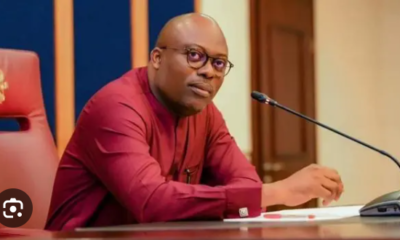
 News10 months ago
News10 months agoHURIWA Declares Governor Fubara’s Emergence as Divine, Urges Support for Rivers State’s Progress
-
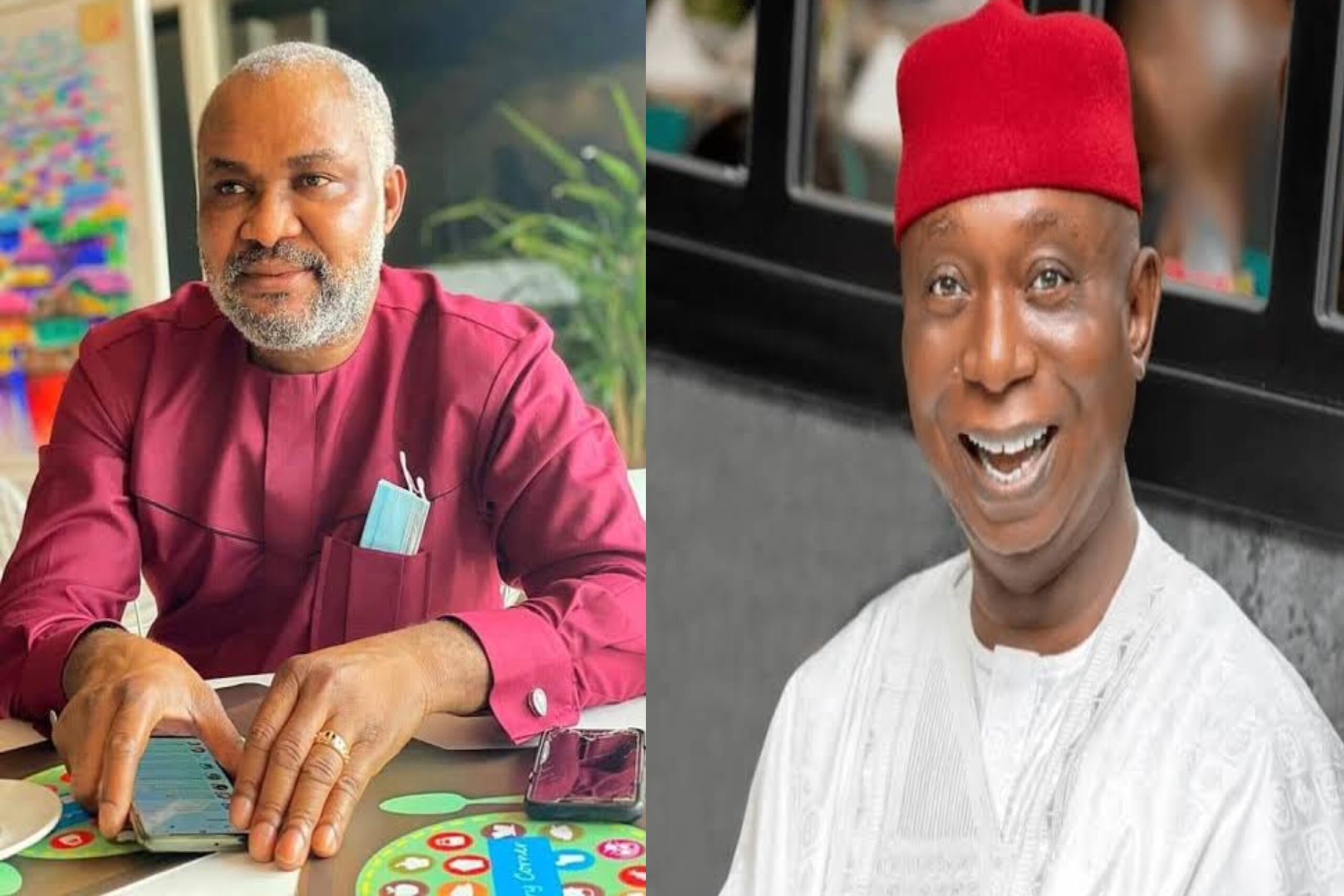
 News10 months ago
News10 months agoAnioma State as panacea to South-East marginalization – By Emmanuel Onwubiko
-

 Opinion8 months ago
Opinion8 months agoNIGERIAN WOMAN IN DIASPORA, CULTURAL SHOCKS – By Stacey Ukaobasi Onwuegbuchulam
-
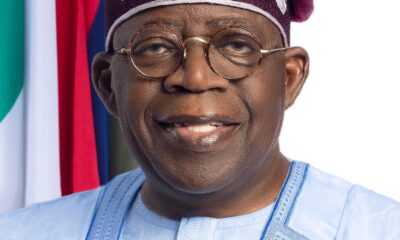
 News11 months ago
News11 months agoHURIWA Blames Serial Stampedes on Weaponized Poverty, Warns of Nigeria’s Rapid Decline
-
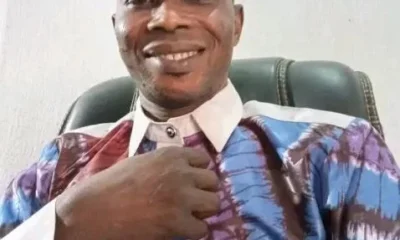
 News10 months ago
News10 months agoJealous Husband Stabs Nigerian Bishop To Death Over Suspicion Of Sleeping With Estranged Wife
-
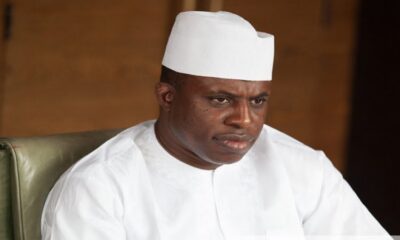
 News10 months ago
News10 months agoTinubu sympathizes with ex-speaker Bankole on the death of his mother
-
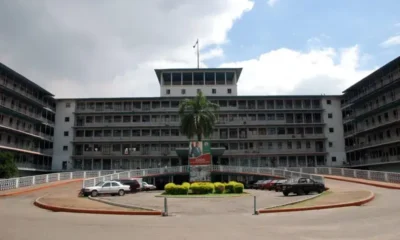
 Health8 months ago
Health8 months agoA complete list of 154 healthcare facilities across Nigeria that provide free emergency obstetric care and VVF (Vesico-Vaginal Fistula) surgeries.
